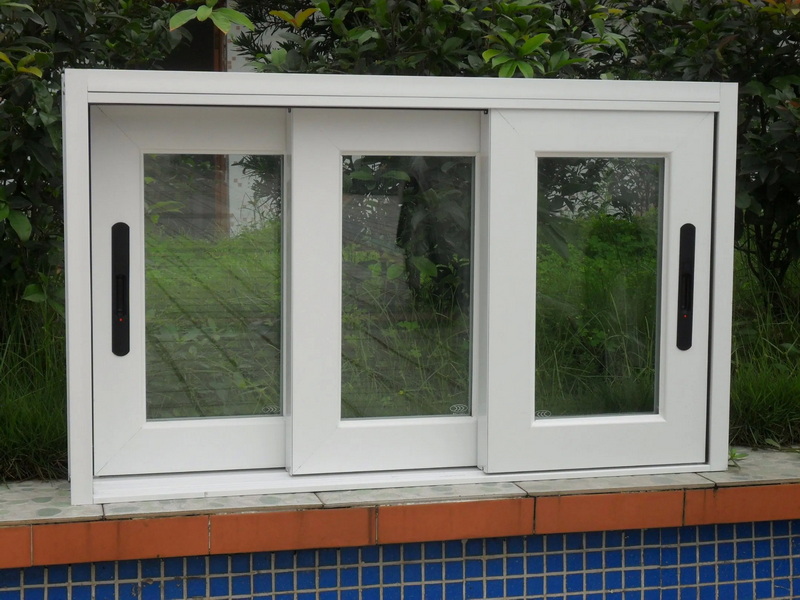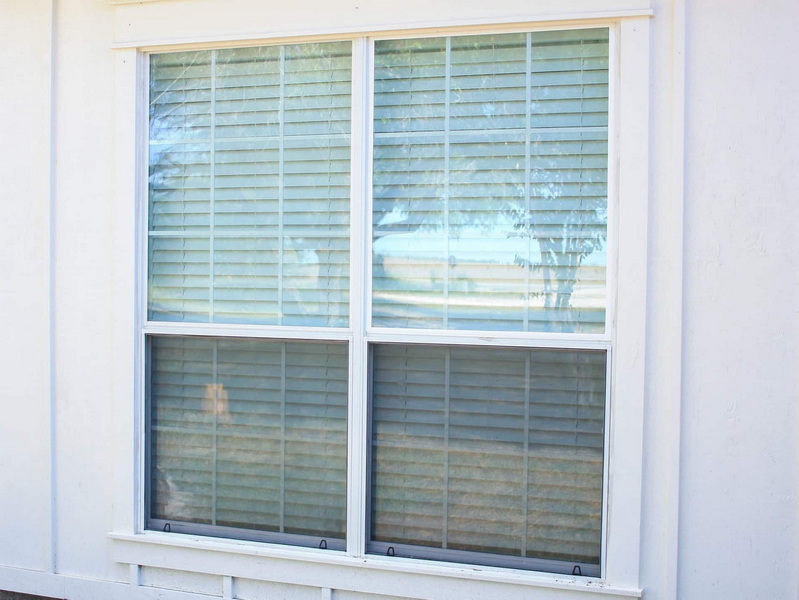English


Views: 222 Author: Dream Publish Time: 2025-01-22 Origin: Site











Content Menu
>> Advantages of Vinyl Windows
>> Disadvantages of Vinyl Windows
● Overview of Aluminum Windows
>> Advantages of Aluminum Windows
>> Disadvantages of Aluminum Windows
● Comparison Table: Vinyl vs. Aluminum Windows
● Factors to Consider When Choosing Windows
● FAQs About Vinyl vs. Aluminum Windows
>> 1. What is the main difference between vinyl and aluminum windows?
>> 2. Which type of window is more energy-efficient?
>> 3. Are aluminum windows more durable than vinyl?
>> 4. How often do I need to maintain each type of window?
>> 5. Which type of window is more cost-effective?
When it comes to choosing windows for your home, two of the most popular materials are vinyl and aluminum. Each option has its own set of advantages and disadvantages, which can make the decision-making process challenging. In this article, we will explore the differences between vinyl and aluminum windows, their respective benefits and drawbacks, and provide guidance to help you make an informed choice.

Vinyl windows are made from polyvinyl chloride (PVC), a type of plastic that has become increasingly popular due to its durability, energy efficiency, and low maintenance requirements.
- Energy Efficiency: Vinyl windows are known for their excellent insulation properties. The PVC material provides thermal resistance, contributing to energy efficiency by helping to maintain a consistent indoor temperature. This can lead to reduced energy consumption and lower utility bills.
- Low Maintenance: One of the standout features of vinyl windows is their low maintenance requirements. They do not require painting or staining and can be easily cleaned with soap and water. Unlike wood, vinyl does not rot or warp over time.
- Durability: Vinyl windows are highly resistant to moisture, rust, and pests. They can withstand various environmental conditions without deteriorating, making them a long-lasting choice for homeowners.
- Cost-Effectiveness: Generally, vinyl windows are more affordable than aluminum options, both in terms of upfront costs and long-term savings due to their energy efficiency.
- Limited Customization: While vinyl windows come in various colors and styles, they are not as customizable as aluminum frames. Once installed, changing the color or style can be challenging.
- Susceptibility to Extreme Temperatures: In extremely hot or cold climates, vinyl may expand or contract more than aluminum, potentially affecting its structural integrity over time.
Aluminum windows are made from lightweight yet strong metal frames. They have been a popular choice for both residential and commercial buildings due to their modern aesthetic and durability.
- Strength and Durability: Aluminum is significantly stronger than vinyl, making it ideal for larger window installations where structural integrity is critical. It can withstand harsh weather conditions without warping or bending.
- Modern Aesthetic: Aluminum frames typically have thinner profiles compared to vinyl frames, allowing for larger panes of glass that maximize natural light. This sleek design is often favored in contemporary architecture.
- Customization Options: Aluminum windows can be finished in a variety of colors and textures, providing homeowners with more design flexibility compared to vinyl options. They can also be coated with finishes that enhance their resistance to corrosion and fading.
- Energy Efficiency: While advancements have been made in improving the thermal performance of aluminum windows (such as thermal breaks), they generally do not insulate as well as vinyl windows. This can lead to higher heating and cooling costs in extreme climates.
- Maintenance Requirements: Although aluminum is durable, it may require more maintenance than vinyl. Over time, the finish on aluminum frames can chip or fade, necessitating periodic repainting or refinishing.

| Feature | Vinyl Windows | Aluminum Windows |
|---|---|---|
| Energy Efficiency | Excellent insulation properties | Generally less energy-efficient |
| Maintenance | Low maintenance | Requires periodic upkeep |
| Durability | Resistant to moisture and pests | Strong but may dent or scratch |
| Aesthetic Appeal | Thicker frames with limited styles | Sleek design with customizable options |
| Cost | Generally more affordable | Higher upfront costs |
| Lifespan | 20-40 years | 30-50 years |
When deciding between vinyl and aluminum windows, consider the following factors:
- Climate: If you live in an area with extreme temperatures, vinyl may provide better insulation. However, if you need large window openings or live in a region prone to severe weather events, aluminum may be the better choice due to its strength.
- Aesthetic Preferences: If modern aesthetics with slim profiles appeal to you, aluminum might be preferable. Conversely, if you prefer a traditional look with various color options, vinyl could be more suitable.
- Budget: Evaluate your budget not only for initial costs but also for long-term energy savings and maintenance expenses.
Choosing between aluminum and vinyl windows isn't just about functionality—it's about setting the tone for your home's visual appeal. Your home's architectural style can significantly impact your window choice.
- Sleek and Modern Design: Ideal for those who love contemporary design, offering thin frames that maximize views and light.
- Fixed Frame Colors: Aluminum windows are typically available in a range of factory finishes but are not paintable, which can limit customization options.
- Versatile Designs: Comes in various textures and colors, including options that mimic wood.
- Custom Color Matching: Colored vinyl windows can perfectly complement your specific interior or exterior needs, offering greater flexibility in style adjustments.
If your home's architecture leans towards modern and you're looking for clean lines, aluminum is a clear winner. However, vinyl provides an unmatched level of adaptability for those prioritizing color flexibility.
Window replacement is a major renovation project; thus you want your new units to last a lifetime. Choosing durable windows that withstand harsh conditions is vital.
- Renowned for their strength; capable of supporting large panes of glass.
- Typical lifespan – 20-25 years; however, they are prone to scratching, denting, and corrosion which requires proper maintenance.
- Excellent performance in various climates; resistant to rotting and rust.
- Typical lifespan – 30-40 years; guarantees excellent performance with minimal maintenance.
Overall resilience favors vinyl as the more durable choice for most homeowners.
Energy efficiency is perhaps the number one reason homeowners decide to replace their old windows. With heating and cooling bills on the rise, new windows offer significant boosts to thermal performance.
- Metal frames conduct heat effectively; therefore less energy-efficient.
- Provide better insulation; reducing energy costs by minimizing heat transfer.
When seeking maximum energy efficiency from either type of window, look for ENERGY STAR-qualified models which help lower energy bills significantly over time.
The ability to customize your windows can make a big difference in how well they complement your home's design:
- Offers a sleek profile attractive in modern homes.
- Available in several factory finishes but cannot be painted afterward.
- A wide range of colors and finishes available; including wood-like appearances.
Vinyl's adaptability makes it a clear favorite for homeowners envisioning specific aesthetics for their property.
Vinyl is hands down the most cost-effective frame material available for window replacement projects:
- Homeowners can expect to pay approximately $1,090 – $1,300 for standard triple-pane vinyl casement windows.
In contrast:
- Aluminum window prices typically range higher due to material costs despite being competitive with other materials like wood or fiberglass.
In conclusion, both vinyl and aluminum windows have unique advantages and disadvantages that cater to different homeowner needs. Vinyl excels in energy efficiency and low maintenance while providing a versatile aesthetic at an affordable price point. On the other hand, aluminum offers strength with modern aesthetics but may require more upkeep over time.
Ultimately, the best choice depends on your specific needs regarding climate conditions, aesthetic preferences, budget considerations, and long-term maintenance expectations.

The primary difference lies in their materials; vinyl is made from PVC while aluminum is made from metal. This affects their energy efficiency, maintenance needs, durability, and aesthetic appeal.
Vinyl windows are generally considered more energy-efficient due to their superior insulation properties compared to aluminum windows.
Yes, aluminum windows are stronger than vinyl; however, they can be prone to dents and scratches while vinyl is resistant to such superficial damage.
Vinyl windows require minimal maintenance (occasional cleaning), while aluminum windows may need periodic repainting or refinishing due to wear over time.
Vinyl windows tend to be less expensive upfront while offering long-term savings through energy efficiency compared to aluminum options.
[1] https://www.ecolinewindows.ca/aluminum-vs-vinyl-windows-comparison-costs-pros-and-cons/
[2] https://www.americanwindowcompany.com/pros-and-cons-of-vinyl-windows/
[3] https://www.americanwindowproducts.com/the-pros-and-cons-of-aluminum-windows/
[4] https://todayshomeowner.com/windows/guides/vinyl-vs-aluminum-windows/
[5] https://paradigmwindows.com/vinyl-vs-aluminum-windows/
[6] https://www.windowresource.com/understanding-vinyl-windows-pros-and-cons/
[7] https://apexwindowwerks.com/blog/pros-and-cons-of-aluminum-windows/
[8] https://www.fixr.com/articles/vinyl-vs-aluminum-windows
[9] https://www.windowscanada.com/whitepages/aluminum-vs-vinyl-windows.html
[10] https://elegantviewwindows.com/pros-and-cons-of-vinyl-windows/
[11] https://www.windowresource.com/advantages-and-disadvantages-of-aluminum-windows/
[12] https://www.bobvila.com/articles/vinyl-vs-aluminum-windows/
[13] https://ecochoicewindows.ca/vinyl-vs-aluminum-windows/
[14] https://www.mhiwindows.com/vinyl-windows-advantages-disadvantages/
[15] https://nanyangaluminium.com/benefits-of-aluminum-windows/
[16] https://magicwindow.ca/blog/vinyl-vs-aluminum-windows-advantages-and-disadvantages/
[17] https://www.angi.com/articles/pros-and-cons-aluminum-vs-vinyl-windows.htm
[18] https://energyswingwindows.com/blog/what-are-the-pros-and-cons-of-vinyl-windows/
[19] https://fintecnic.pl/en/blog/aluminium-windows-advantages-and-disadvantages/
[20] https://advancedwindowsusa.com/vinyl-or-aluminum-windows-which-is-better
[21] https://www.nachi.org/vinyl-windows.htm
[22] https://door-filipek.pl/en/types-of-aluminum-windows,-opening-methods,-functionality,-advantages-and-disadvantages/
[23] https://www.windowworldlongisland.com/blog/vinyl-vs-aluminum-windows-comparing-their-benefits-and-limitations/
[24] https://unitedhomeexperts.com/the-pros-and-cons-of-vinyl-windows/
[25] https://www.greenmatch.co.uk/windows/aluminium
[26] https://www.thisoldhouse.com/windows/aluminum-vs-vinyl-windows
[27] https://www.wizehomedirect.com/blog/pros-and-cons-of-vinyl-windows
[28] https://colinssashwindows.co.uk/blog/ultimate-guide-to-aluminum-windows-in-2024-styles-costs-pros-cons/
Seven Requirements for External Doors And Windows of Passive Rooms
How Much Do You Know about The Design Standards for Aluminum Alloy Door And Window Dimensions?
Welding Vs Stainless Steel Fabrication: Understanding The Manufacturing Process Differences
Stainless Steel Fabrication Vs Powder Coated Steel: Durability And Cost Comparison
CNC Machining Vs Stainless Steel Fabrication: Pros And Cons for Industrial Use
Stainless Steel Fabrication Vs Carbon Steel Fabrication: Key Differences Explained
Stainless Steel Fabrication Vs Aluminum Fabrication: Which Is Right for Your Project?
Stainless Steel Grades 201 Vs 304: Cost Vs Performance Breakdown
316L Vs 316 Stainless Steel Grades: Which Is Better for Corrosion Resistance?
Comparing Austenitic Vs Martensitic Stainless Steel Grades: What You Need To Know?
